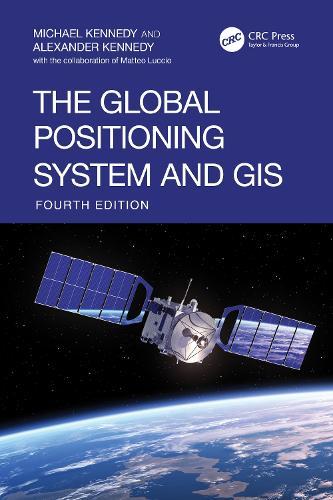Overview
Now in its fourth edition, The Global Positioning System and GIS arrives at a critical moment of transition— a time when new methods for collecting position and attribute data are reshaping how information is integrated into Geographic Information Systems (GIS). This edition is uniquely structured to reflect this shift: each chapter is divided into two sections— one covering “Newer Technology,” including the latest advances in hardware, software, and cloud- based data collection, and the other preserving and refining “Older Technology” techniques from the third edition. As GIS platforms represent the Earth with increasing precision and Global Navigation Satellite Systems (GNSS) deliver accuracy down to the centimeter, this book equips readers with proven, practical methods for building highly accurate and actionable geospatial datasets across a wide variety of devices and platforms. Features: • Step- by- step tutorials for hands- on learning, balancing theoretical foundations with practical application. • Covers both ArcGIS Pro (ESRI) and QGIS (open- source), ensuring students and professionals can work across essential GIS platforms. • Supports a broad range of devices: Android, iOS, and Trimble receivers. • Provides downloadable datasets for instructors to use in exercises, examples, and exams. • Features an entirely new chapter by GPS World former Editor- in- Chief Matteo Luccio, along with exclusive interviews with GPS and GIS pioneers Brad Parkinson, Charlie Trimble, and Jack Dangermond. Clear, practical, and deeply informed by the evolution of the field, The Global Positioning System and GIS, first published in 1996, remains the definitive resource for anyone working where geospatial accuracy matters— from students and researchers to GIS professionals across all disciplines.
Full Product Details
Author: Michael Kennedy (University of Kentucky, Lexington, USA) ,
Alexander Kennedy
Publisher: Taylor & Francis Ltd
Imprint: CRC Press
Edition: 4th edition
Weight: 0.453kg
ISBN: 9780367506063
ISBN 10: 0367506068
Pages: 430
Publication Date: 31 October 2025
Audience:
College/higher education
,
Professional and scholarly
,
Tertiary & Higher Education
,
Professional & Vocational
Format: Hardback
Publisher's Status: Forthcoming
Availability: Not yet available

This item is yet to be released. You can pre-order this item and we will dispatch it to you upon its release.
Author Information
Michael Kennedy’s principal expertise lies in the application of computers to interesting problems and is deeply involved in the growing area of Geographic Information Systems (GIS). Since the early 1970s he has conducted work on ""making a computer believe it's a map."" In 1991 he founded the GIS program in the Department of Geography at the University of Kentucky. Professor Kennedy is the author of several textbooks and “Introducing Geographic Information Systems with ArcGIS -- A Workbook Approach to Learning GIS, Third Edition” published by Wiley, is one of them. Over the years Professor Kennedy has had a wide range of experiences relating computers and environmental matters. Primarily to be able to talk to planners about the newly emerging field of GIS he became certified as a planner by the American Institute of Certified Planners (AICP). He was Director of the Computer-Aided Design Laboratory at the University of Kentucky for several years. He has been invited to teach GIS and/or programming at Simon Fraser University and several state or provincial universities: North Carolina, Florida, and British Columbia. Alexander Kennedy is a Software Engineer, Data Visualization Engineer, and Data Journalist who specializes in interactive data storytelling for environmental and public health issues. His public-facing work has been published in People Magazine and Undark Magazine. In 2022 his interactive feature Below Dozens of Aging Dams a Potential Toxic Calamity (co-authored with James Dinneen) was awarded the ASJA Donald Robinson Memorial Award for Investigative Journalism, nominated for ASME's National Magazine Award in the Reporting category, and nominated for the NIHCM Foundation’s Digital Media Journalism Award. Alexander has led data visualization workshops, including a D3.js workshop at Impact Labs. Alexander is an active advocate for open data policies and civic data art. From 2019 to 2021 he co-curated and co-organized Data Through Design (DxD), an annual exhibition celebrating tangible, multimedia expressions of New York City's Open Data. DxD is produced in partnership with the NYC Mayor’s Office of Data Analytics, BetaNYC, NYC Open Data Week, and the US Census. In his spare time, Alexander loves to make music and dance.



